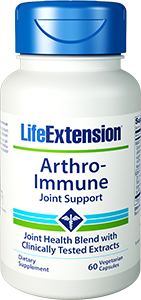 | February 5, 2010 | Green tea compound reduces fibroid growth in laboratory studies | | Fibroid tumors are benign uterine growths that may affect as many as 77 percent of women in the United States. African-American women are disproportionally affected. Although many women with fibroids remain asymptomatic, others may experience abnormal bleeding, pain, infertility, or pregnancy complications. Current treatments include hysterectomy, myomectomy, uterine artery embolization, and drug treatment; however, these options are associated with various undesirable effects. Researchers at Meharry Medical College in Nashville, Tennessee report in the American Journal of Obstetrics & Gynecology that epigallocatechin gallate (EGCG), a flavonol contained in green tea (Camilla sinensis), helped reduce the growth of cultured fibroid tumor cells, as well as fibroid tumors in female mice. A team led by Ayman Al-Hendy, MD, PhD, who is the Vice Chair of the Center for Women's Health Research at Meharry Medical College's Department of Obstetrics and Gynecology, administered a solution containing varying concentrations of EGCG or no EGCG to rat leiomyoma (fibroid tumor) cells for up to 7 days. Cells treated with the highest concentrations of EGCG grew more slowly and were less crowded than those treated with lower concentrations. After 48 hours of treatment with the highest concentration of EGCG, cells became shrunken, were fewer in number, and featured irregularly shaped nuclei. In another experiment, estrogen-treated female mice were implanted with fibroid tumor cells and were given drinking water that provided 1.25 milligrams EGCG per day or no EGCG for up to 8 weeks. When the animals were examined at 4 and 8 weeks, tumor weight was lower and tumor volume was smaller in the EGCG-treated mice compared with those that did not receive the compound. Although all mice developed fibroid tumors after being inoculated with tumor cells at the beginning of the study, one mouse that received EGCG was found to be free of tumors at the end of the treatment period. Mechanisms for EGCG in fibroid growth inhibition include apoptosis (programmed cell death) and inhibition of cell proliferation. "On the basis of the present study, we conclude that EGCG and green tea extract may have potential as oral agents for the prevention or treatment of uterine leiomyoma," the authors write. "EGCG might be particularly useful for long-term use in women with a low fibroid tumor burden to arrest tumor progression and avoid the development of severe symptoms that necessitate major surgery. Further evaluation of EGCG in well-designed clinical trials in women with uterine fibroid tumors is warranted." | |  |  | | The uterus is one organ in a complex system that composes the structures common to the internal genitalia of a woman. The uterus is a hollow, pear-shaped organ of reproduction in which the fertilized egg is implanted and the fetus develops. However, the uterus, composed of the cervix, the body, and the fundus, can experience stress beyond its role in pregnancy. One such uterine anomaly is the formation of fibrous or fully developed connective tissue, resulting in abnormal muscle cells, referred to as a uterine fibroid or myoma. Since fibroids tend to increase during pregnancy and decrease during menopause, presumably due to fluctuating levels of estrogen, uterine fibroids are considered to be estrogen-dependent (Pollow et al. 1978). To further substantiate this finding, in leiomyomas (leio meaning smooth; myomas meaning a common benign fibroid tumor on the uterine muscle), estrogen levels were persistently elevated whereas progesterone showed contradictory levels from test results, some showing low concentrations and others showing elevations (Sadan et al. 1987). Nutritional supplementation for uterine fibroids should include antiestrogenic substances such as flavonoids which have 1/400-1/50,000 the estrogenic effect that synthetic estrogen has. Flavonoids contribute very little to the total body supply of estrogen. Various herbs (saw palmetto, historically used for benign prostatic hyperplasia), lady's mantle, chaste tree berries, and yarrow flowers have been cited for their antiestrogenic values. Other supplements recommended for uterine fibroids include immune-enhancing nutrients such as coenzyme Q10, vitamin C, zinc, arginine/lysine combination, maitake mushrooms, and vitamin A. The antioxidant activity of beta-carotene, vitamin C, vitamin E, and selenium is also recommended. Some women prefer an abdominal/pelvic surgical intervention (a myomectomy) that removes the fibroids and the muscle tissue, but spares the uterus. However, 15-30% of women who have a myomectomy eventually require further surgery because fibroids can recur. Even if a woman is not concerned about protecting her fertility, a myomectomy should still be considered as an alternative to a hysterectomy. | Life Extension Magazine® February, 2010 issue now online 
- On the cover:
- Reports:
- Departments:
- Scientific abstracts:
| |
 | Dr Tung's Tongue Cleaner   | | Medical texts dating back hundreds of years describe the cleaning of the tongue as part of people’s daily hygiene routine. Wealthy Europeans in the 18th and 19th century used tongue scrapers. Research is now showing that tongue cleaning is an essential part of overall oral hygiene. Television shows like 20/20 and The Today Show have featured reports on the importance of tongue cleaning. The tongue scraper made by Dr. Tung is a U-curved stainless steel device with a firm, smooth edge. The plastic comfort grips enable the user to easily reach the back of the tongue, giving precise control over the pressure and position of the scraper. | | |   | | 
Life Extension’s Arthro-Immune Joint Support contains PARACTIN® Andrographis extract, which has been used in clinical, animal and in vitro studies that have demonstrated its efficacy in combating inflammation. It also contains BCM-95® Bio-Curcumin®, which is considered the gold standard curcumin, with bioavailability far superior to that of most curcumin extracts. Life Extension’s Arthro-Immune Joint Support provides scientifically validated plant extracts that have been shown to have significant salutary effects on tender or swollen joints. | | | |  | | Life Extension Update | | What's Hot | | Life Extension Magazine® | |

